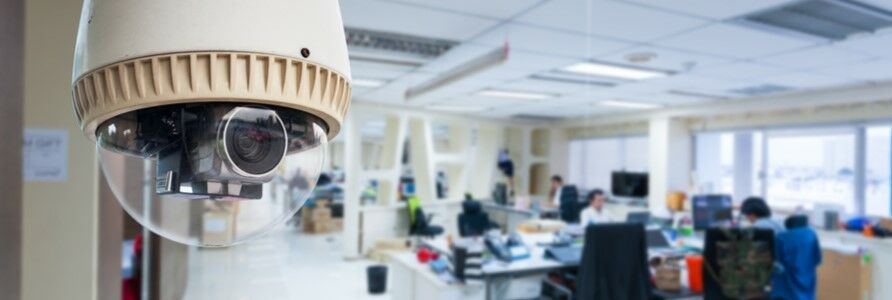Surveillance of employees
Reason
There are many reasons why an employer may want to implement a surveillance system in the workplace. Sometimes the employer wants to prevent theft, check that employees are not tampering with the time recording system, or ensure the safety of workers working on dangerous installations. Sometimes the employer wants to monitor employees' business travel or ensure that they do not spend their working day visiting private websites.
Data protection
When employers set up employee surveillance systems, they collect a lot of personal data, such as video recordings, employee movements and websites visited.
Employee surveillance can seriously infringe on the privacy and personality of employees. Moreover, employees can quickly feel spied on or pressured, which can affect their psychological health. The employer is obliged to respect strict conditions and procedures before setting up such a system. It is essential that the employer issues a regulation concerning surveillance in the workplace that complies in all respects with the conditions set by the Federal Data Protection Commissioner.
Purpose
The surveillance system must meet an objective need of the employer, such as safety or accident prevention. A surveillance system set up to monitor the behavior of employees at their workstations is prohibited.
Proportionality
Installation of a GPS that tracks the employee's movements in the work vehicle or spyware on the computer that allows the employer to see all the websites consulted: some surveillance systems seriously infringe on the employee's privacy. The employer must have an important objective reason to justify such surveillance of the employee. Otherwise, the system will be disproportionate and the surveillance unlawful.
Video surveillance
When a video surveillance system is set up, employees often feel spied upon or pressured, especially when the cameras are pointed at a place where employees regularly pass by. However, the employer sometimes has real reasons to install cameras in sensitive areas of the company such as cash registers or bank counters.
A balance must be found. The employer must ensure that the privacy of the employee is infringed upon as little as possible. Video surveillance is subject to strict conditions defined by the Federal Data Protection Commissioner.
Telephone
For reasons of quality control or training, particularly in customer service, the employer is tempted to set up a telephone tap. Such monitoring is delicate. In any case, phone tapping without the employee's knowledge is strictly prohibited.
When the employee's cell phone is used as both a business and a private phone, the employer often wishes to have access to it in order to distinguish between the employee's business and private expenses. This is surveillance that cannot be put in place without respecting further conditions.
Electronic monitoring
Employees who regularly use computers, company computer systems and the Internet for their work are increasing more and more. Between employees who spend time on private websites during work, those who consult pornographic or even illegal websites and employees who insult the employer on social networks: the employer's fears are real.
The employer will be able to set up electronic surveillance if he/she respects a certain number of conditions and a strict procedure defined by the Federal Data Protection Commissioner. For example, it will not be possible to monitor employees' individual Internet use from the outset.
Teleworking
Out of sight, out of mind? When an employee works from home, the employer's ability to monitor the employee's work and schedule is more limited. Before using invasive surveillance systems, such as webcam video surveillance or spyware installation, the employer should use systems that are less invasive of the employee's privacy.
Monitoring by third parties
When the employer does not have the time or the technical means, he/she sometimes calls upon third parties, such as a private detective or a "mystery shopper" to monitor his/her employees. These situations are delicate and not always legal.
Personal data
In all situations, the employer must ensure the protection of the personal data of his/her employees. The employer must take the necessary measures to guarantee the confidentiality of data such as video recordings or the employee's professional movements. After a certain period of time, the data must be destroyed.
Sanctions
When workplace surveillance reveals violations or abuses by an employee, the employer may take sanctions against the employee, provided that the surveillance is lawful. These sanctions can range from a simple warning to termination with immediate effect.

